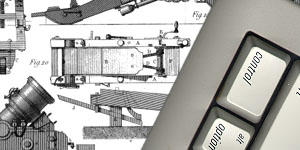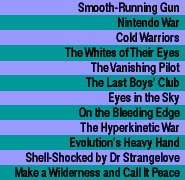


The Last Boys' Cluib
Today's technological infantry is armed with personal computers, fax machines, video cameras, global positioners, laser rangefinders, cellular phones, day-and-night vision, battlefield screens---oh, and, of course, guns. Computers make all those new devices possible. Yet, however dressed up with the latest toys, war is about killing and avoiding being killed. That ultimate reality is becoming easier for civilians to ignore as computers invade the battlefield, distancing all except the dying from what war is really about. Still, the one certain thing that all wars produce is cemeteries.For the infantry, war means freezing cold or baking heat and relieving yourself out in the open. It means hunger, and bone-deep exhaustion, and no hot meals for days. It means living with lice, fleas, rats, and dirt and grease so thick you feel you'll never be clean again. It means worry about your family and seeing your friends butchered right in front of your eyes. It means constant muddle and low-grade pain liberally mixed with bursts of mind-numbing terror.
Throughout the centuries, the infantry has always suffered the highest casualties of all military units. Even during this century, a combat infantry soldier's chances of being injured or killed during wartime have been better than two in three. Technology may drop that percentage over the next few decades for rich nations, but it won't ever bring it to zero. War is about causing mass death. Now that death is coming to men and women alike.
New technology, invented for one quite narrow reason, almost always has unpredictable consequences. During the 1991 Gulf War, for instance, over twelve hundred American troops left the war early---because they were pregnant. It doesn't require big muscles to pull a trigger or command a combat computer. With smart standoff weapons, it's no longer even necessary to see the enemy, far less wrestle with them. And the days when troops had to march for weeks or months carrying enormous loads are fading---at least in advanced militaries. Instead, soldiers get to the war in armored vans and helicopters. So the traditional military advantages of higher male strength and stamina are decreasing, being slowly equalized away by technology.
Nonetheless, except for aviation, sailing, and artillery, women are still denied direct combat roles in Western militaries. That doesn't, of course, keep them safe. During the Gulf War, several American female soldiers were killed or injured, and two were captured. Every soldier in a combat zone, even those in administrative or support positions, goes armed and is a potential casualty. Technology helps, but it doesn't keep you from being a target. In war, everyone is a target.